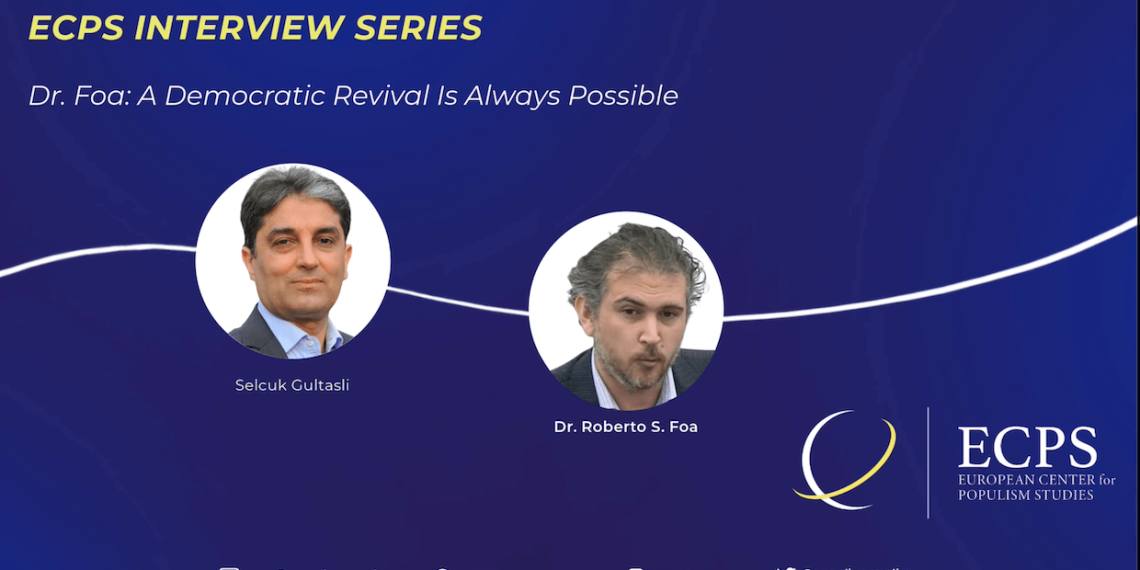Despite recognizing the difficulties brought by growing authoritarianism, Dr. Roberto S. Foa of Cambridge University maintains a measured optimism regarding the prospects for democratic renewal. He highlights historical patterns of democratization and shifts in public opinion—such as those triggered by the Russian invasion of Ukraine and the Trump presidency—as indications that democratic principles can regain strength in response to perceived threats. However, he cautions against generalized solutions, stressing that each democracy grapples with distinct institutional and political hurdles that demand context-specific strategies for revitalization.
Interview by Selcuk Gultasli
The resilience of democracy in the face of mounting global challenges has become one of the most pressing questions of our time. As populist leaders continue to gain traction, democratic norms erode, and authoritarian tendencies rise, many scholars and policymakers are left wondering whether these trends signal a long-term shift or a temporary setback in the cyclical evolution of governance. Dr. Roberto Stefan Foa, Assistant Professor in Politics and Public Policy at Cambridge University, has dedicated his research to understanding the dynamics of democratic deconsolidation and the conditions necessary for democratic renewal.
In this interview with the European Center for Populism Studies (ECPS), Dr. Foa provides a nuanced perspective on whether the recent wave of democratic backsliding—evident in both Western and emerging democracies—represents an irreversible decline or a phase within a broader historical pattern. He highlights the importance of distinguishing between informal and formal democratic norms, explaining how social media, populist rhetoric, and political polarization have eroded basic principles of civility and accountability. However, he also underscores the resilience of institutions, particularly in Western Europe, where robust political frameworks have mitigated some of the more extreme consequences of democratic decline.
A key theme in this conversation is the role of economic hardship and cultural grievances in shaping voter behavior, particularly among younger generations. Dr. Foa explores how disillusionment with mainstream politics can lead to either political apathy or support for more radical alternatives, including both left-wing and right-wing populist movements. At the same time, he argues that traditional political parties must adapt to these shifting dynamics by engaging in meaningful reform, rather than relying on outdated strategies to counteract the appeal of extremist factions.
While acknowledging the challenges posed by rising authoritarianism, Dr. Foa remains cautiously optimistic about the potential for democratic revival. He points to historical cycles of democratization, as well as recent public opinion shifts following events such as the Russian invasion of Ukraine and the Trump presidency, as evidence that democratic values can reassert themselves in reaction to perceived threats. Ultimately, he warns against simplistic, one-size-fits-all solutions, emphasizing that each democracy faces unique structural and political challenges that require tailored approaches to renewal.
This interview provides a thought-provoking analysis of the current state of democracy and the pathways available for its restoration. It is an essential read for scholars, policymakers, and citizens alike who seek to understand the evolving nature of political power in the 21st century.


